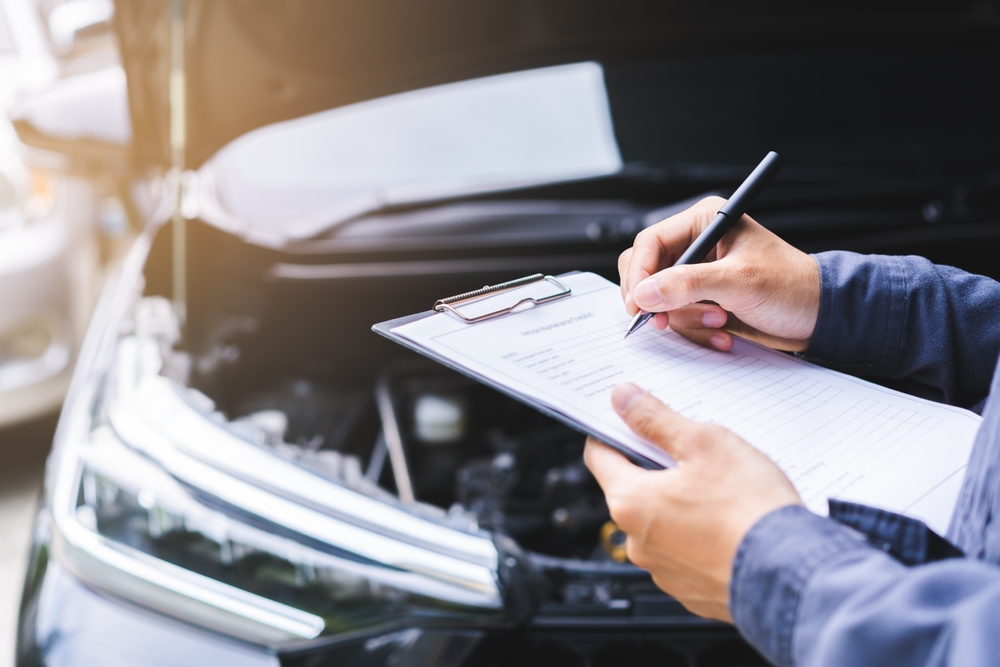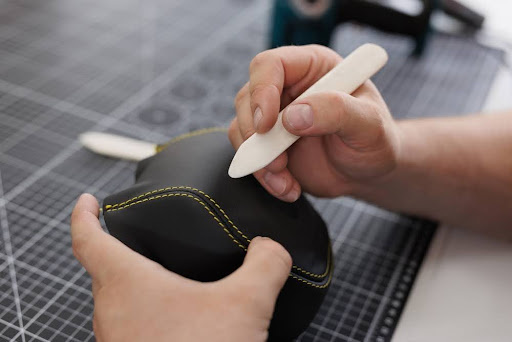Getting a car can be really exciting, isn’t it? But don’t forget about the tiny yet important warranty that comes with it. This car warranty will make sure you get free repairs in case of any malfunction.
Reading and understanding your warranty is important, and in this blog, we’re going to help you do exactly that so you can access the repairs you need, stress-free.
What is a Car Warranty?
In simple words, a car warranty is a document that you receive when you buy a car. This warranty guarantees that the manufacturer will pay the repair costs if something goes wrong with your car. Let’s face it: car repairs can be really expensive, and that makes a warranty very important. But it’s important to note what parts of your car are protected under the warranty and for how long. Most new car warranties cover most parts of your car.
How Much Does Your New Car Warranty Cost?
Upon buying a new car, your warranty is already covered in the bill. You don’t need to pay any extra cost for a warranty. If you want to extend your warranty, you will have to pay additional charges. The price of your extended warranty depends on the kind of coverage you’re looking for, plus the time/mileage covered.
How Long Does Your New Car Warranty Last?
The longevity of your warranty depends on the car brand. Hyundai and Kia are known for offering the best car warranty, with 10 years/100,000 miles of powertrain coverage and 5 years/60,000 miles of bumper-to-bumper coverage. Generally, most car warranties last for four to five years.
What Does Your New Car Warranty Cover?
Let’s find out what parts of your car are protected under the warranty:
Powertrain Limited Warranty: Covers essential parts like the engine, transmission, and drivetrain.
New Vehicle Limited Warranty: Protects most parts of the car, including basic systems and components.
Limited Anti-Perforation Warranty: Covers rust damage on the car’s body panels.
Roadside Assistance: Provides help with towing, jump-starts, and flat tire changes.
Trip Interruption Policy: Reimburses expenses if your car breaks down during a trip.
EV System Warranty: Covers important electric vehicle parts like the motor and power electronics.
EV Battery Coverage: Protects the battery from defects or early failure.
What Does Your New Car Warranty Exclude?
Here are common exclusions in a new car warranty:
Routine Maintenance: Services like oil changes, tire rotations, and brake pad replacements.
Wear and Tear: Items such as tires, wiper blades, and brake pads.
Accidental Damage: Repairs needed due to collisions or improper use.
Modifications: Issues caused by aftermarket parts or unauthorized modifications.
Cosmetic Damage: Scratches, dents, and paint fading are not covered.
Environmental Damage: Issues from weather, road salt, or natural disasters.
Neglect or Misuse: Damage from not following maintenance guidelines or improper use.
What Is a Used Car Warranty?
If you’ve bought a pre-owned vehicle, your warranty can look a little different. Here are a few options:
1. If the original manufacturer's warranty is still active, you can continue to use that warranty.
2. Certified pre-owned warranty is backed by the car’s manufacturer. This warranty is available on used cars sold through official dealerships; these warranties are usually long-term and are sold with quality-checked cars.
3. When you buy a used car from a dealership, they might offer their own warranty. These are usually shorter in duration and focus on the most common mechanical issues or repairs.
4. And finally comes the third-party warranty; here you can customize the type of warranty and duration based on your needs. Be sure to choose a trusted third-party warranty to get the best service.
What Are Extended Car Warranties?
If you run out of your original manufacturer warranty, then you can opt for an extended car warranty from your manufacturer. This will extend your warranty to cover a longer duration. You can also choose to get your extended warranty from a third-party vendor. Third-party warranties usually cover even older vehicles and are more affordable and flexible, making them a popular choice. Be sure to choose a trusted third party and also read the warranty carefully to avoid any pitfalls.
How Much Should An Extended Car Warranty Cost?
The cost of your extended car warranty depends on a couple of factors, namely, the vehicle’s make, model, age, and the type of coverage you choose. According to Consumer Affairs’s research, based on about 500 quotes, the average cost for an extended car warranty is $1,000 per year. With the lowest quote being $280 a year and the highest being $2700. The prices can vary a lot, so it’s a good idea to get and compare multiple quotes to choose the best warranty for your car.
Here’s a general estimate of extended warranty costs:
- Basic coverage typically costs between $500 and $1,000, covering major components like the engine and transmission.
- Comprehensive coverage can range from $1,000 to $2,500, offering more extensive protection across a wider range of parts.
- For luxury or high-end vehicles, extended warranties can cost over $3,000, due to the higher repair costs and more advanced parts.
The cost may also vary depending on the length of coverage and the provider (manufacturer or third party). It's important to consider the type of coverage that best suits your needs and your budget.
Are Extended Car Warranties Worth It?
Should you buy an extended warranty for your car? Let's find out:
Benefits of an Extended Car Warranty
- Gives you financial protection from costly repairs after the manufacturer’s warranty ends.
- If your car is older, high-mileage, or a luxury vehicle, then adding a warranty can give you significant peace of mind.
- Having a warranty can also help you budget more predictably by avoiding large, unexpected repair expenses.
When It Makes Sense
- For older or high-mileage vehicles, they are a lot more likely to need expensive repairs.
- Luxury or high-tech cars have costly parts and labor expenses, which make extended coverage a good investment.
- And also for those preferring extra security from unpleasant surprise costs.
When to Skip It
- Cars with strong reliability ratings may not need extra coverage.
- Setting aside money for repairs may be more cost-effective than the warranty price.
Key Considerations
- Weigh the warranty cost against potential future repair bills.
- Review what’s included, excluded, and any deductibles.
- Choose reputable providers with positive reviews and good claims handling.
Alternatives to Consider
- Set aside money for future repairs instead of paying for a warranty.
- Manufacturer’s extended warranty is usually more reliable than third-party options.
Car Warranty vs. Car Insurance
A car warranty is not the same as insurance; here’s what makes them different:
A warranty is a promise from the manufacturer or seller to repair or replace parts of the car if it breaks or malfunctions due to defects. Warranties from the manufacturer are free and only last for a set period. Car warranties don’t cover accidents or damage caused by external factors.
Insurance, on the other hand, is a policy you pay for that helps cover costs related to accidents, theft, or damage caused by events outside your control. Car insurance can cover a variety of situations, including collisions, theft, vandalism, and even natural disasters.
In short, warranties cover defects and breakdowns, while insurance protects you from unexpected events and accidents.
How To Know If Your Car Is Still Under Warranty?
To check if your car is still under warranty, follow these steps:
- Review Your Warranty Documents
Look for the original warranty paperwork or any extended warranty contracts you may have received when you purchased the car. These documents will tell you the warranty start date and the coverage period.
- Check the Manufacturer’s Website
Many car manufacturers allow you to check your car's warranty status online. You’ll usually need the vehicle identification number (VIN), which can be found on your dashboard or the inside of the driver’s side door frame.
- Contact the Dealership
If you’re unsure or can’t find the paperwork, contact the dealership where you bought the car. They can look up your VIN and verify your warranty status.
- Call the Manufacturer’s Customer Service
If needed, you can call the manufacturer's customer service for confirmation. Be ready to provide your VIN and other details about your car.
Conclusion
Car warranties are there to give you peace of mind, especially when the unexpected happens. They can save you from expensive repair bills, especially if your car is older or prone to issues. While the initial cost might seem like an extra expense, it can be worth it in the long run if you end up needing repairs. However, it’s important to understand the fine print—what’s covered, what’s not, and what you might need to pay out of pocket.
Before deciding on an extended warranty, take a close look at your car’s reliability, how much you drive, and whether you’re comfortable saving for repairs instead.
In the end, it’s about making the right choice for your situation. Whatever you decide, just know that having a warranty can make a big difference in keeping your car running smoothly without breaking the bank.
Frequently Asked Questions
Can I cancel or modify my extended warranty?
Yes, you can cancel or modify an extended warranty, but terms vary by provider. There may be cancellation fees or partial refunds.
Does a car warranty cover regular maintenance?
No, car warranties don’t usually cover regular maintenance like oil changes, tire rotations, or brake replacements unless specified in the warranty agreement.
Can I take my car to any mechanic for repairs under warranty?
Most warranties require you to use an authorized repair shop. Using an unapproved mechanic could void your warranty.
What should I do if a warranty claim is denied?
If your claim is denied, first understand why by reviewing the denial letter. Contact the warranty provider for more details or to dispute the decision. If the issue is unclear, gather additional proof (like service records) and appeal. You can also consider getting legal advice if necessary.
What happens to an extended warranty if the car is totaled?
If your car is totaled while covered by an extended warranty, the warranty typically becomes void. Since the car is no longer operational, there’s no need for further repairs, and the coverage ends. However, some warranty providers may offer a refund for the unused portion of the warranty, especially if you purchased it separately. It's important to check the terms and conditions of your extended warranty to understand what applies in the case of a totaled vehicle.
Do car warranties transfer to second-hand owners?
Yes, car warranties can be transferred to second-hand owners, but it depends on the type of warranty. The original manufacturer’s warranty is usually transferable, provided it’s properly registered with the manufacturer. Extended warranties can also often be transferred if the proper steps are taken.




